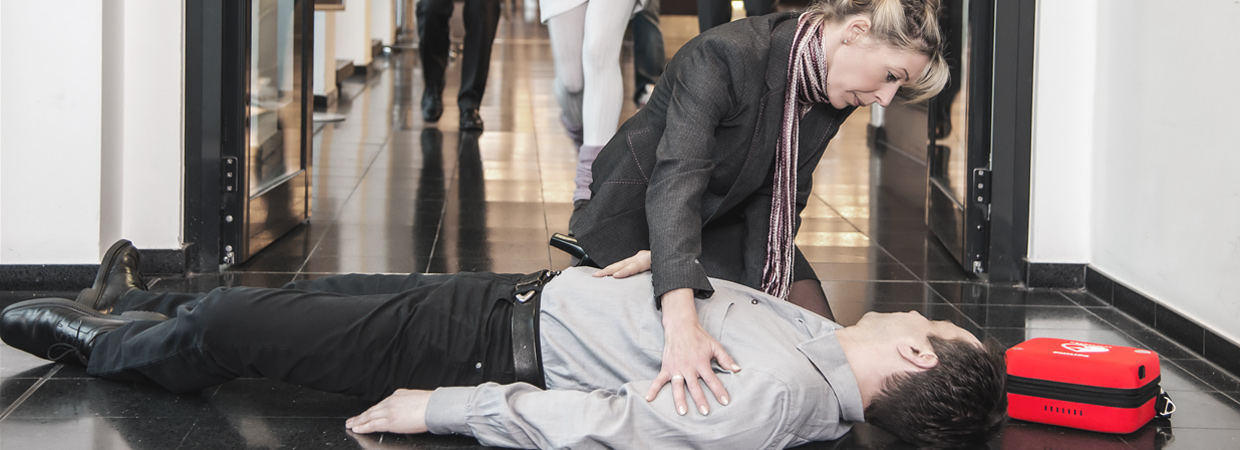It can happen to anyone,
anytime, anywhere
Sudden cardiac arrest (SCA) is one of the leading causes of death in the western world.
In Europe 350,000–700,000 individuals a year suffer SCA outside a hospital setting.
SCA is caused by an electrical mal-function of the heart causing an irregular heart rhythm called Ventricular Fibrillation. The victim is unconscious, without breathing and without pulse.
The only effective treatment is prompt CPR and defibrillation with an Automated External Defibrillator (AED). Without early CPR and early defibrillation more than 95% of SCA victims die.
“The only effective treatment is prompt CPR and defibrillation with an Automated External Defibrillator (AED).”
Survival from it depends on early CPR and early defibrillation. After 10 minutes the chance of survival is less than 5%. Each minute of delay to defibrillation reduces the probability of survival by 10-12%. With early CPR and defibrillation can produce survival rates as high as 50-70%. The American Heart Association (AHA), the European Resuscitation Council (ERC), the Resuscitation Council UK and the British Heart Foundation recommend early defibrillation within 3‐5 minutes after collapse.
When an SCA happens the emergency services should be notified immediately. However, do not wait for them to arrive as they are often too late to successfully resuscitate most people with out-of-‐hospital SCA.
It is vital to have prompt access to an AED. Being prepared for an SCA with an AED program is important. However, being prepared is not about having AEDs available only. It is about having them rescue-ready at all times.
“Each minute of delay to defibrillation reduces the probability of survival to discharge by 10–12%.”
